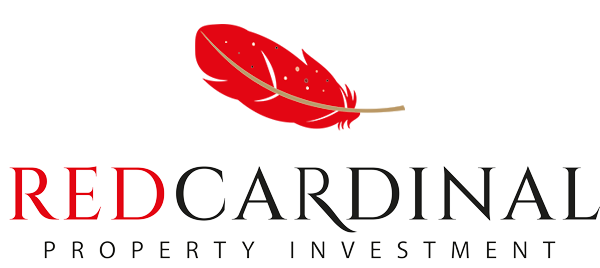How to Finance Your Property Investment: A Guide to UK Mortgage Options
Property investment can be an excellent way to build wealth and generate passive income. However, one of the biggest hurdles that investors face is securing financing. Fortunately, there are a variety of mortgage options available in the UK that can help finance your property investment. In this guide, we’ll explore the various types of mortgages available and provide tips on how to choose the right one for your investment strategy.
Understanding the Different Types of Mortgages
Fixed-Rate Mortgages
When it comes to financing your property investment, one of the most important decisions you’ll need to make is what type of mortgage to choose. There are several types of mortgages available in the UK, each with its own advantages and disadvantages. One popular option is the fixed-rate mortgage.
A fixed-rate mortgage is a type of mortgage where the interest rate is fixed for a set period of time, typically between two and ten years. This means that your monthly mortgage payments will remain the same for the duration of the fixed term, regardless of any changes in the Bank of England’s base rate or market conditions. This can provide peace of mind and make budgeting easier for property investors.
One advantage of a fixed-rate mortgage is that it protects you from interest rate rises. If interest rates were to increase during the fixed term, you would continue to pay the same rate you agreed at the start of the mortgage. However, if interest rates were to fall, you would not benefit from any reduction in your mortgage payments.
Another advantage of a fixed-rate mortgage is that it can help you to plan your finances more effectively. Knowing exactly how much your mortgage payments will be for a set period of time can help you to budget and manage your cash flow.
However, there are also some disadvantages to fixed-rate mortgages. For example, the interest rates on fixed-rate mortgages tend to be higher than those on variable-rate mortgages. Additionally, if you choose a long fixed term and interest rates fall, you may find yourself paying a higher rate than necessary.
When considering a fixed-rate mortgage for your property investment, it’s important to shop around and compare different lenders and products to find the best deal for your needs. You should also consider factors such as fees, early repayment charges, and the length of the fixed term.
In conclusion, fixed-rate mortgages can be a good option for property investors looking for stability and predictability in their mortgage payments. However, it’s important to consider the pros and cons carefully and seek professional advice before making a decision.
Tracker Mortgages
Tracker mortgages are another popular type of mortgage available in the UK. With a tracker mortgage, the interest rate you pay is directly linked to the Bank of England base rate. The interest rate on the mortgage will fluctuate in line with changes to the base rate, meaning your monthly payments could increase or decrease over the term of the mortgage.
Tracker mortgages typically offer a lower interest rate than fixed-rate mortgages, but there is more risk involved as the interest rate can go up as well as down. This means that you could end up paying more in interest if the base rate rises, but you could also benefit from lower payments if the base rate falls.
One advantage of a tracker mortgage is that there is usually no early repayment charge, meaning you can pay off the mortgage early without incurring any fees. However, it’s important to be aware that some tracker mortgages have a cap on how much the interest rate can increase by, known as a “collar”. This means that even if the base rate goes up significantly, your interest rate and monthly payments will only increase up to a certain point.
It’s important to consider your personal circumstances and financial goals when deciding whether a tracker mortgage is the right option for you. If you’re comfortable with the potential for your payments to increase, a tracker mortgage could be a good choice if you want to take advantage of lower interest rates. However, if you prefer the security of fixed payments, a fixed-rate mortgage may be a better fit. It’s always recommended to speak to a mortgage advisor to discuss the options available to you and find the best mortgage for your individual needs.
Discount Mortgages
When it comes to financing your property investment in the UK, there are different types of mortgages available to choose from. One of these types is a discount mortgage. A discount mortgage is a type of variable rate mortgage that offers a discount on the lender’s standard variable rate (SVR) for a set period of time.
During this period, your monthly repayments will be lower than the lender’s SVR. However, once the discount period ends, your monthly repayments will revert to the lender’s SVR, which may be higher than the discounted rate.
The discount offered by the lender is usually expressed as a percentage below the lender’s SVR. For example, if the lender’s SVR is 4% and they offer a 1% discount, your initial mortgage rate would be 3%. The discount period typically lasts between 2 to 5 years, after which the rate will revert to the lender’s SVR.
Discount mortgages can be attractive to investors who want to keep their monthly repayments low during the discount period. However, it’s important to consider the potential increase in monthly repayments once the discount period ends, as well as any early repayment charges or exit fees that may apply.
Another thing to keep in mind with discount mortgages is that they are tied to the lender’s SVR, which can change at any time. This means that your monthly repayments could increase or decrease during the discount period, depending on changes to the lender’s SVR.
Overall, discount mortgages can be a good option for property investors who want to keep their monthly repayments low during the initial period of their mortgage. However, it’s important to consider the potential risks and fees associated with this type of mortgage, and to seek professional advice before making a decision.
Offset Mortgages
Offset mortgages are a type of mortgage where the borrower’s savings are used to offset the amount owed on the mortgage, reducing the interest paid. The borrower can either make overpayments on the mortgage or hold their savings in an offset savings account linked to the mortgage. The interest earned on the savings is then used to reduce the interest charged on the mortgage, resulting in a lower monthly payment or shorter mortgage term.
Offset mortgages can be beneficial for borrowers who have a significant amount of savings or irregular income streams. The offset feature allows them to reduce the interest charged on their mortgage while still having access to their savings. Additionally, because the borrower is effectively overpaying on their mortgage each month, they can pay off their mortgage earlier than the original term.
However, offset mortgages tend to have higher interest rates than standard mortgages, and the amount of savings required to offset the mortgage can be significant. Some lenders may also have restrictions on the type of savings accounts that can be linked to the mortgage.
It is important for borrowers to consider their financial situation and goals before opting for an offset mortgage. Consulting with a financial advisor or mortgage broker can help them determine if an offset mortgage is the right choice for their needs.
Interest-Only Mortgages
Understanding the Different Types of Mortgages focusing on Interest-Only Mortgages
Interest-only mortgages are a type of mortgage where the borrower is only required to pay the interest on the loan each month, rather than paying down the principal balance as well. This means that the monthly payments on an interest-only mortgage are lower than on a repayment mortgage, but the borrower will need to repay the full amount of the loan at the end of the mortgage term.
Interest-only mortgages were popular in the UK before the 2008 financial crisis, but since then, they have become much less common due to increased regulation and tighter lending standards. However, some lenders still offer interest-only mortgages, and they can be a useful option for certain types of borrowers.
Interest-only mortgages are often used by buy-to-let investors, who can use the lower monthly payments to maximise their rental income and then pay off the loan when they sell the property. They can also be a good option for borrowers who have irregular incomes, as they can make lower monthly payments during lean periods and then pay down the principal balance when their income increases.
One potential downside of interest-only mortgages is that they can be more expensive over the long term, as the borrower will need to pay off the full loan amount at the end of the term. This means that interest-only mortgages are usually only recommended for borrowers who have a clear plan in place for paying off the loan, such as through the sale of the property or through investment returns.
Overall, interest-only mortgages can be a useful tool for certain types of borrowers, but they should be used carefully and with a clear plan in place for paying off the loan. As with any type of mortgage, it is important to shop around and compare rates and terms from multiple lenders to find the best deal for your individual circumstances.
Factors to Consider When Choosing a Mortgage
Choosing the right mortgage is a crucial decision when it comes to property investment. Here are some factors to consider when selecting a mortgage:
Your investment goals and strategy
When considering property investment, choosing the right mortgage is a crucial step in achieving your investment goals and strategy. Here are some factors to consider when selecting a mortgage that aligns with your investment strategy:
Interest Rates
Interest rates can greatly impact the affordability of your mortgage, and ultimately, your investment returns. It is important to research and compare interest rates offered by different lenders to find the most competitive rates available.
Mortgage Term
The length of your mortgage term can impact your monthly mortgage payments and overall investment strategy. Shorter mortgage terms typically result in higher monthly payments but can save you money in interest over the life of the loan. Longer mortgage terms result in lower monthly payments but may result in paying more in interest over time.
Repayment Type
The two primary types of repayment options for mortgages are interest-only and capital repayment. Interest-only mortgages allow you to only pay the interest on the loan for a set period, while capital repayment mortgages require both interest and principal payments. Your investment goals and strategy will dictate which repayment type is best for you.
Early Repayment Charges
Some mortgage lenders may charge a penalty for early repayment of the loan. If you plan on selling your investment property or refinancing your mortgage in the future, it is important to consider potential early repayment charges.
Affordability
It is essential to ensure that your mortgage payments are affordable and align with your investment goals and strategy. Consider your current income, future income potential, and any potential rental income from the property when determining affordability.
By considering these factors when selecting a mortgage, you can make an informed decision that supports your investment goals and strategy. It is also recommended to seek the advice of a professional mortgage advisor to ensure that you are making the best decision for your specific investment needs.
Interest rates and affordability
When considering a mortgage for property investment, there are several factors to keep in mind. One of the most crucial factors to consider is interest rates. The interest rate will determine the cost of borrowing, and a higher interest rate will result in higher monthly repayments. It’s important to shop around for the best interest rates and to consider whether a fixed-rate or variable-rate mortgage would be more suitable for your investment strategy.
Another critical factor to consider is affordability. It’s essential to ensure that you can comfortably afford the mortgage payments, taking into account any rental income that the property may generate. Lenders will also look at your income and credit history to determine whether you are a suitable candidate for a mortgage.
Investment goals and strategy are also important factors to consider when choosing a mortgage. For example, if your goal is to generate a steady rental income, you may want to consider an interest-only mortgage. This will allow you to make lower monthly payments and maximise your rental income.
On the other hand, if your investment strategy involves buying and selling properties for a profit, you may want to consider a shorter-term mortgage with a lower interest rate. This will enable you to reduce the overall cost of borrowing and increase your potential profit when you sell the property.
Overall, when choosing a mortgage for property investment, it’s important to consider factors such as interest rates, affordability, and investment goals and strategy. It’s also advisable to seek the advice of a mortgage broker or financial advisor to help you navigate the complex world of property investment finance.
Mortgage fees and charges
When choosing a mortgage for your property investment, it is important to consider the fees and charges associated with each mortgage option. Mortgage fees can include arrangement fees, valuation fees, legal fees, and early repayment charges. These fees can vary widely between lenders and can significantly impact the overall cost of the mortgage.
It is important to carefully review the fee structure of each mortgage option and consider how these fees will impact your investment strategy. For example, if you plan to sell the property in the near future, early repayment charges may not be a concern. However, if you plan to hold the property long-term, it may be worth paying higher upfront fees to secure a lower interest rate and avoid future charges.
Additionally, it is important to consider the overall affordability of the mortgage. This involves not only considering the interest rate and monthly payment amount, but also factoring in any additional costs associated with the property such as maintenance and repairs. It is important to ensure that the mortgage payment is within your budget and will not put undue strain on your finances.
Overall, carefully considering the fees and charges associated with each mortgage option and ensuring affordability are key factors in choosing the right mortgage for your property investment strategy.
Loan-to-Value ratio
When choosing a mortgage for your property investment, it is important to consider the loan-to-value (LTV) ratio. This ratio represents the amount of the loan compared to the value of the property. For example, if you are purchasing a property worth £200,000 and you have a deposit of £40,000, you will need a mortgage for £160,000, which represents an 80% LTV ratio.
Lenders typically have a maximum LTV ratio they are willing to offer, which can vary depending on factors such as the type of property and the borrower’s credit score. A higher LTV ratio may mean a higher interest rate and may require additional mortgage insurance.
As an investor, it is important to consider the LTV ratio when choosing a mortgage, as it can affect the amount of cash flow you have available for other investments or expenses. A lower LTV ratio can also mean less risk for the lender, which may result in more favourable loan terms and conditions. Therefore, it is important to consider your investment goals and strategy when deciding on the LTV ratio that works best for you.
How to Secure a Mortgage
Securing a mortgage is an essential step towards property ownership in the UK. However, navigating the mortgage market can be challenging, with a range of lenders, products, and criteria to consider. Whether you’re a first-time buyer or an experienced investor, understanding the mortgage process and knowing how to secure the best deal is crucial. In this article, we’ll provide a comprehensive guide to securing a mortgage in the UK, covering everything from preparing your finances to choosing the right lender and product.
Preparing your finances and credit score
When it comes to securing a mortgage in the UK, one of the most important factors is your finances and credit score. Before you start the application process, it’s essential to have a clear understanding of your financial situation and take steps to improve your credit score if necessary. In this article, we’ll cover the key things you need to know about preparing your finances and credit score to increase your chances of securing a mortgage in the UK.
Working with a mortgage broker
If you’re in the market for a mortgage in the UK, working with a mortgage broker can be a helpful option. A mortgage broker is a professional who can help you navigate the complexities of the mortgage market and find the right mortgage for your needs. They work on your behalf to find and secure the best mortgage rates and terms from a range of lenders. A mortgage broker can also help you prepare your application, advise you on the types of mortgages available, and guide you through the mortgage application process. In this article, we’ll take a closer look at how working with a mortgage broker can help you secure a mortgage in the UK.
Choosing a lender and applying for a mortgage
When it comes to securing a mortgage, choosing the right lender and navigating the application process can be a daunting task. It’s important to do your research and compare different lenders to find the best mortgage deal for your needs. Once you’ve chosen a lender, you’ll need to prepare your application and provide the necessary documentation, such as proof of income and credit history. The lender will then review your application and determine if you qualify for a mortgage. Working with a mortgage broker can help simplify this process and increase your chances of securing a mortgage that fits your financial goals and needs.
Providing documentation and satisfying mortgage conditions
Once you have submitted your mortgage application, the lender will request various documentation to verify your income, employment, credit history, and other financial information. You will need to provide these documents promptly to avoid any delays in the mortgage approval process. In addition, the lender may also set specific conditions that must be met before the mortgage can be approved, such as completing a home appraisal or providing proof of insurance. It is important to be aware of these conditions and work to satisfy them as quickly as possible to ensure a smooth and timely mortgage approval process.
Tips for Maximising Mortgage Benefits
Negotiating interest rates and mortgage terms
When applying for a mortgage, it’s important to negotiate for the best interest rates and mortgage terms possible. This can help save you money over the life of your mortgage and make your investment more profitable. You can negotiate with your lender by using the information you’ve gathered about the mortgage market and your own financial situation. Be prepared to discuss your credit score, income, and other factors that may affect your ability to secure a good interest rate. Additionally, consider working with a mortgage broker who can help you negotiate on your behalf and provide valuable insights into the mortgage market. Remember that even small differences in interest rates can have a big impact on the overall cost of your mortgage, so don’t be afraid to negotiate.
Making early repayments to reduce interest costs
Making early repayments on your mortgage can help you reduce the overall interest costs of the loan. By making additional payments towards the principal, you can decrease the total amount of interest that accrues over time. This can be done in a variety of ways, such as making extra payments on a regular basis or making a lump-sum payment. Before making early repayments, it’s important to check with your lender to ensure that there are no penalties for doing so, and to make sure that the extra payments are applied towards the principal balance.
Leveraging mortgage tax benefits
When it comes to mortgage financing, there are also potential tax benefits that can be leveraged. For instance, mortgage interest is typically tax-deductible, which can help to lower your overall tax liability. Additionally, some homeowners may be eligible for certain tax credits related to home improvements or energy efficiency upgrades. It’s important to consult with a tax professional to fully understand the potential tax benefits of your mortgage and how to make the most of them.
Refinancing to take advantage of better rates or terms
Refinancing your mortgage can be a smart financial move if you can secure a better interest rate or terms that are more favourable to you. It can help you save money on interest over the life of your mortgage, reduce your monthly payments, or shorten the length of your loan. By refinancing, you can also switch from an adjustable-rate mortgage to a fixed-rate mortgage or vice versa, depending on your financial goals. However, it’s important to weigh the costs and benefits of refinancing and to make sure it aligns with your long-term financial strategy.
Risks and Limitations of Mortgages for Property Investment
Interest rate fluctuations and payment obligations
Interest rate fluctuations can have a significant impact on your mortgage payments. If you have a variable rate mortgage, your monthly payments can increase or decrease depending on changes to the interest rate. It’s important to budget accordingly and prepare for potential payment increases. Additionally, missing payments or defaulting on your mortgage can have severe consequences, including the risk of foreclosure. It’s important to stay on top of your payment obligations and seek help if you’re struggling to make your payments.
Risks associated with high Loan-to-Value ratios
Taking out a mortgage with a high Loan-to-Value (LTV) ratio can be risky, as it means borrowing a larger percentage of the property’s value and potentially paying higher interest rates. If the value of the property decreases, the homeowner may end up owing more on the mortgage than the property is worth. Additionally, if the homeowner is unable to make payments, they may face foreclosure and lose their home. It’s important to carefully consider the risks associated with high LTV ratios and make a decision based on individual financial circumstances.
Property valuation risks and potential negative equity
When securing a mortgage, there is always a risk that the value of the property may fall below the amount borrowed, leading to negative equity. This can be a significant problem for homeowners who want to sell their property or remortgage, as they may not be able to repay the full amount owed on the mortgage. Additionally, if the property value falls significantly, the homeowner may struggle to secure additional financing for home improvements or renovations. It is important to carefully consider the risks associated with property valuation and negative equity before entering into a mortgage agreement.
Changes in lending and mortgage regulation
Changes in lending and mortgage regulation can impact the availability of mortgages and the terms on offer. For example, changes to the affordability assessment rules or stress tests can affect the amount you can borrow, and stricter lending criteria can make it harder to qualify for a mortgage. It’s important to stay up-to-date on changes to lending and mortgage regulations and work with a trusted mortgage broker to ensure you’re aware of any potential impacts on your mortgage.
In summary, securing the right mortgage is a crucial part of financing your property investment. Understanding the different types of mortgages available, factors to consider when choosing a mortgage, and tips for maximising mortgage benefits can help you make informed decisions and achieve your investment goals. It’s also important to be aware of the risks and limitations associated with mortgages for property investment and to seek professional advice when necessary.
Stay informed and gain insights with our Cambridge Terrace property developments.




